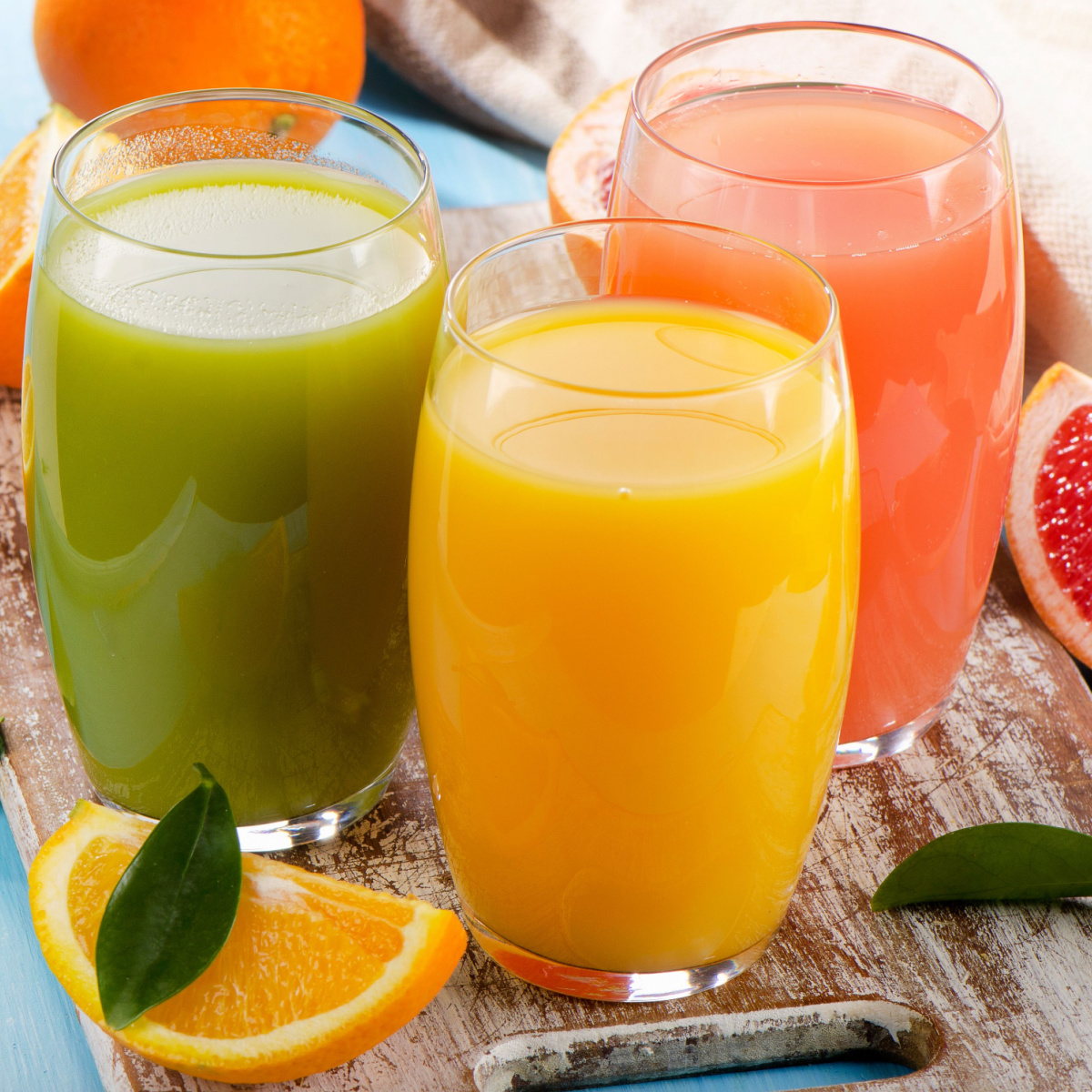
1. Fruit Juice
Fruit juice, often perceived as a choice, can actually contribute to inflammation and weight gain because of its concentrated sugar content. While natural fruit sugars are accompanied by beneficial nutrients when consumed in whole fruits, the juicing process extracts the liquid, leaving behind concentrated sugars without the fiber and other compounds that help mitigate their impact.
"Commercial fruit juices often have added sugars, artificial flavors, and lack the fiber present in whole fruits. Consuming fruit juice without the fiber can lead to a rapid increase in blood sugar levels, promoting inflammation. The body doesn't register liquid calories as well as solid ones, leading to overconsumption and potential weight gain. The absence of fiber in fruit juice can also impact satiety, making it easier to consume more calories from other sources," Booker says.
2. High-Sugar Coffee
Sugar, syrups, and whipped cream may add flavor, but coffees that contain these ingredients also add a lot of health risks. Most flavored syrups for coffee are widely sweetened with corn syrup that increases blood glucose way up, leading to weight gain. Similarly, sugar also has high amounts of fructose, which is linked to all sorts of problems like weight gain and diabetes. Not only is sugar bad for your general health, but sugar-heavy diets have been linked to inflamed breakouts and premature wrinkles.
These sugar and flavored syrup additives are highly inflammatory to the body and thus increase the cholesterol level in the blood. "The bad thing about refined sugar is that the body is able to metabolize and break them down rapidly, so it causes a spike in blood sugar levels," Scott explains. "In turn, there is an overproduction of insulin. If this continues, your body will have insulin resistance, which can lead to diabetes and other heart diseases. This can also cause you to have a hard time losing weight."
While refined sugars and flavored syrups should be avoided as much as possible, this is especially important for women over the age of 40. Not only are these ingredients high in calories, but they're empty calories, so they have no nutritional value.
3. Soda
Soda, although a staple in many households, poses a dual threat to health by promoting inflammation and contributing to weight gain. Packed with added sugars, sodas can lead to a rapid surge in blood sugar levels when consumed in excess. Moreover, the liquid calories provided by sodas can easily lead to an increased overall caloric intake, potentially contributing to weight gain over time. These fizzy drinks are also linked to a host of other health issues such as diabetes, reduced brain health, and even cancer.
Moody lists several reasons why this sugar-laden drink needs to be cut out of your diet, especially when it comes to weight gain.
"Depending on the brand, a standard 12-ounce can of soda can have 120 - 180 calories. While this isn’t a huge number, it’s important to note that there are zero nutrients to be found in soft drinks. Soft drinks are typically made from high fructose corn syrup with some artificial colors and flavors added and then infused with carbonated water to give those signature bubbles," she notes.
Moody further warns that soda is "essentially liquid sugar. However, corn syrup is just another form of sugar, and consuming a volume this large too often can cause inflammation in the body that can make it more difficult to lose weight and put you at risk for chronic diseases."


